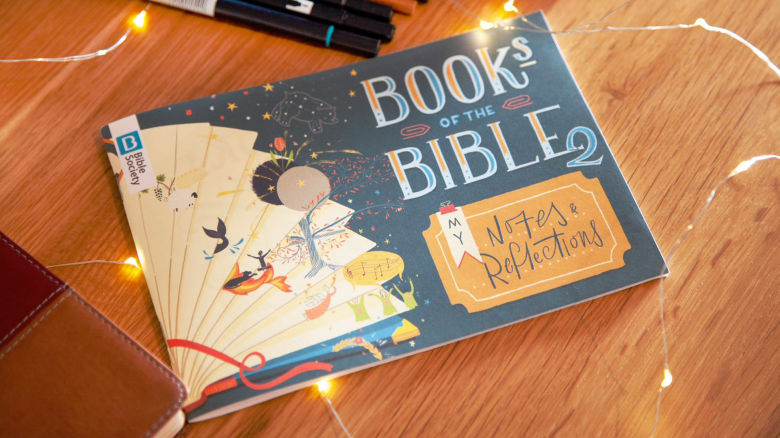Ezra begins as the exile in Babylon ends. Having defeated the Babylonians, King Cyrus of Persia issued a decree releasing all exiles and allowing them to return home. Chapters 1–6 describe the initial return under Zerubbabel and the reconstruction of the temple; the next three chapters (7–10) begin to address the reconstruction of the community after their years in exile. Ezra is strongly connected to the book of Nehemiah, so strongly in fact that some think that they were originally a single book. The rest of the story of the return continues in Nehemiah. It is also worth noting that although it is not a part of 1 and 2 Chronicles, the story of Ezra picks up where 2 Chronicles ends.
10 When the builders laid the foundation of the temple of the Lord, the priests in their vestments were stationed to praise the Lord with trumpets, and the Levites, the sons of Asaph, with cymbals, according to the directions of King David of Israel; 11 and they sang responsively, praising and giving thanks to the Lord, 'For he is good, for his steadfast love endures forever toward Israel.' And all the people responded with a great shout when they praised the Lord, because the foundation of the house of the Lord was laid. (Ezra 3.10–11)
Not so much tricky as dull, the genealogies don’t make the most exciting reading.
More tricky is the attitude that Ezra takes here (and Nehemiah also takes in the book of Nehemiah) against mixed marriage, in an attempt to maintain the ‘purity’ of the line of God’s people. You will need to reflect on why they took this stand and how you relate to it today.
You may notice that there are some big time lags in this book. King Cyrus declared that people could return in 538 BC but Ezra didn’t go until the reign of King Artaxerxes, probably around 458 BC. The history has been compressed to keep the focus on the return, even though the process took a very long time.
Jewish tradition states that Ezra wrote all of 1 and 2 Chronicles, Ezra and Nehemiah.
More recent explorations of the books, however, have concluded that the authorship is more complex than that. All four books seem to have been collected together from a wide variety of sources. If you look carefully while you read you might be able to notice some of the joins in the text.
We know very little about which people finally put all the strands together in these four books.
We do know a little about the main character of the book – Ezra. He was a scribe and a priest and is credited with bringing the Torah back to Judah after the exile. Some people have even pointed to Ezra as being influential in bringing the five books of the Torah together in the form they have now.
This was a tumultuous time in Judah’s history. The king and nearly everyone influential from the land had been taken away into exile in Babylon, first around 598 BC and then again around 586 BC. In 538 BC King Cyrus decreed that everyone could go home. The problem was that they had been away for around 60 years – most of the people ‘returning’ had never lived there in the first place.
The challenges of the return from exile made identity a key question in this period. What did it mean to be the people of God and what did they need to rebuild in order for them to be able to be God’s people once more?
2 Chronicles, Nehemiah, Haggai, Zechariah, Joel
This is a history book, but it falls into the category of what you might call theological history – history with a purpose. It is not telling the story just so that you can know what happened, but so that you can understand why it happened. Many of the historical books of the Bible are like this.
There are two key sections to this book
1.1–6.22 The return under Zerubbabel and the reconstruction of the temple, including:
1.1–11 Cyrus’ decree allowing the exiles' return
2.1–70 A list of those who returned
3.1–4.24 The altar is rebuilt and the foundations laid for the temple
5.1–6.22 The temple is rebuilt
7.1–10.44 The return under Ezra and the reconstruction of the community
7.1–8.36 Ezra’s commission to return
9.1–10.44 Ezra works to reconstruct the community
There will be lots of names you will not know, don’t worry if you can’t place them all. The key ones are given below.
Babylon, Tyre (Tyrians), Sidon (Sidonians), Ai, Assyria, Israel, Jerusalem, Judah, Judea, Lebanon, Media, Persia, Ramah, Samaria, Susa
Cyrus, Sheshbazzar, Zerubbabel, Ahasuerus, Artaxerxes, Darius, Ammonites, Gedaliah, Babylonians, Benjamin, Canaanites, Hezekiah, Iddo, Jebusites, Levi, Levites, Manasseh, Moabites, Moses, Nebuchadnezzar II, Persians, Sidonians, Tyrians, Zerubbabel
Altar, Torah, Adar, burnt offering, Cherubim, Feast of Unleavened Bread, Passover, priest, Urim and Thummim
Throughout the book the phrase ‘the hand of our God’ is repeated time and time again. Look out for it and see what you think it means as it arises.
Prayer is very important both in this book and in Nehemiah. Notice the prayer when it comes, and how Ezra prays.
Another theme that emerges on more than one occasion is the Exodus. If you notice this strand, ask yourself why it was so important for God’s people to see their return as a new Exodus. Why might it have helped them to see it like this?
Both Ezra and Nehemiah deal practically with the theme of recovery after an utter disaster. Reflect as you read on the theme of recovery. Can you learn anything from them about how recovery happens and what needs to be in place to help it happen?

Here are 8 handy tips to get your book club up and running.

Here are some ideas to get you started.

Unsure of the meaning of a word or phrase in the Bible? Check our glossary of terms.
Books of the Bible journal: 2nd Edition
Journey through the Bible, one book at a time, with the 2nd edition of our Books of the Bible journal.
